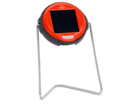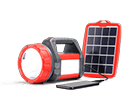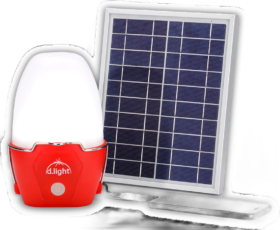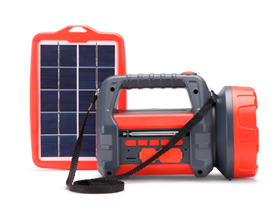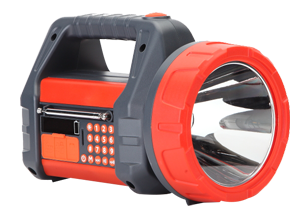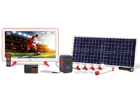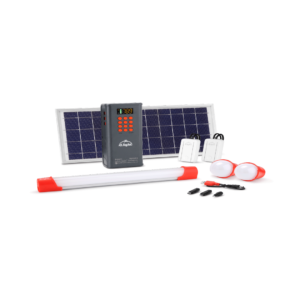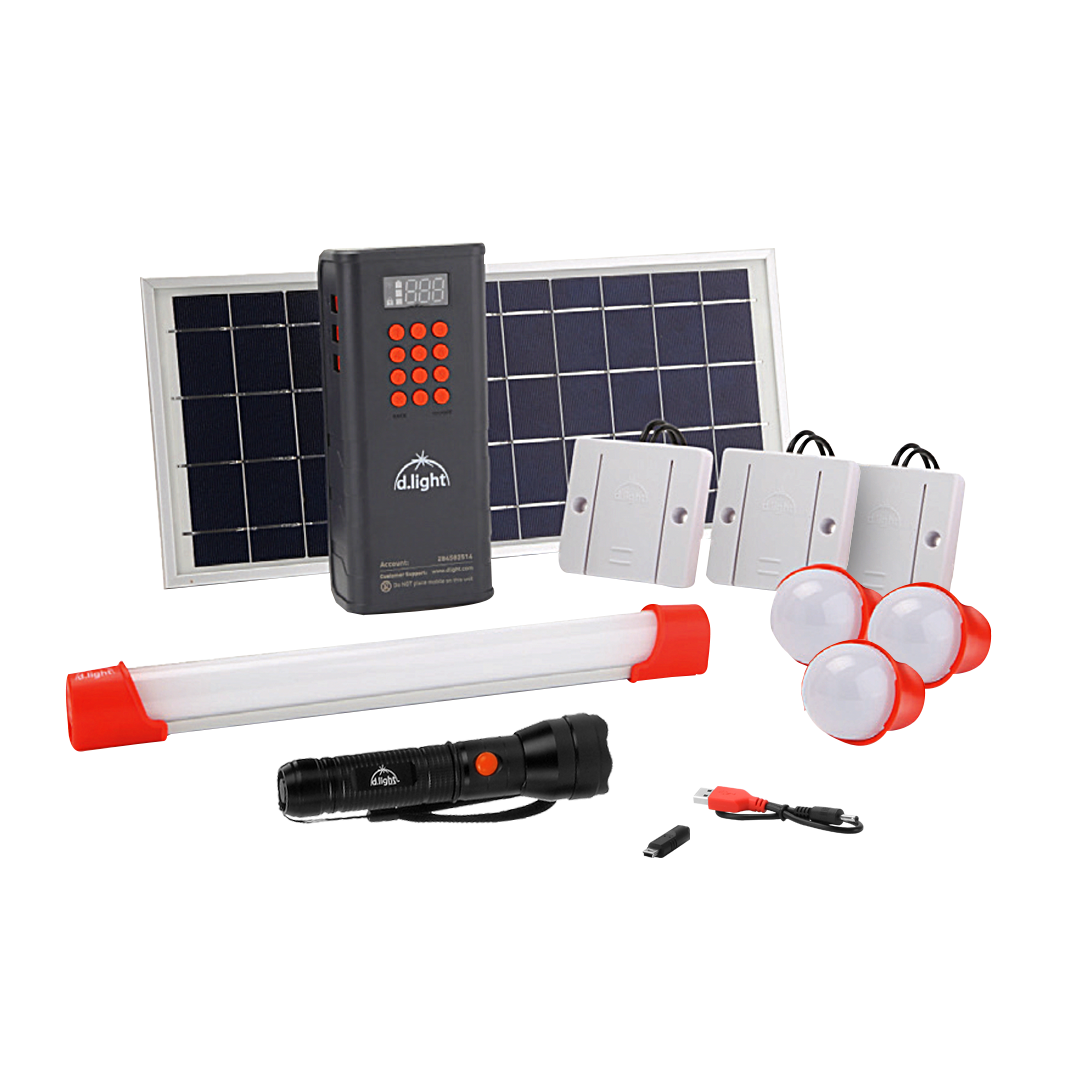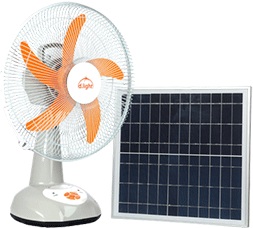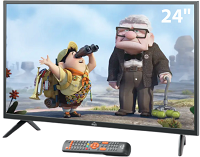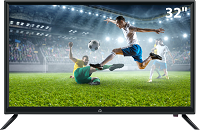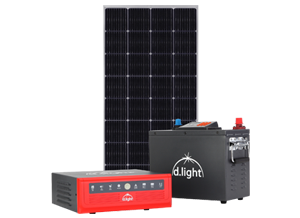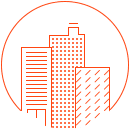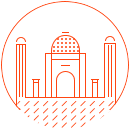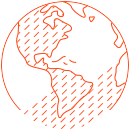Co-founders Sam Goldman and Ned Tozun have partnered together to lead d.light for nearly ten years
 In 2004, Sam Goldman was a Peace Corps volunteer in Benin, West Africa, when tragedy struck his neighbors.
In 2004, Sam Goldman was a Peace Corps volunteer in Benin, West Africa, when tragedy struck his neighbors.
Sam was living in a remote, un-electrified village called Guinagourou. He had come to rely on a small LED headlamp for light each evening; the other households in the village only had access to kerosene lanterns.
One evening, a young boy living in the hut next door accidentally spilled a burning kerosene lamp. He sustained third-degree burns over his entire body. The nearest hospital was forty-five kilometers away. With no ambulance support outside the cities, Sam watched as the neighbors gathered to offer their condolences and local herbs to ease his pain.
Sam was horrified by what kerosene had done to this boy and his family, and wondered why simple technology like his LED headlamp was not more readily available. He had grown up in in India, Pakistan, Peru, Mauritania, and Africa with his aid-worker parents, and understood that many people still lacked access to reliable electricity. Neither the public nor the private sectors were adequately meeting this huge need.
“This ten-dollar light had transformed my life,” Sam recalls. “Instead of buying kerosene, I could save a good percentage of my small Peace Corps stipend. I could see to cook and read comfortably without inhaling kerosene fumes or worrying about the mosquito net catching fire. I was safer because I was able to avoid bitten by snakes or scorpions.”
Sam contacted multiple corporations that sold portable lights in hopes of becoming a distributor, but no one responded. He decided to bring the technology to Africa himself and entered the Stanford Graduate School of Business in 2005 with the intention of starting such a business.
There he met Ned Tozun, a serial entrepreneur and engineer who had recently volunteered in Malawi, East Africa, recording the personal histories of AIDS patients. After launching a few technology startups, Ned entered business school with a similar vision. “After being struck by Malawian families’ quality of life struggles and challenges, I wanted to make it my life’s mission to empower people living at the bottom of the economic and social pyramid,” remembers Ned.

As classmates in the Design for Extreme Affordability program at the Stanford Design School, Sam and Ned created their first prototype for families without electricity: a simple, battery-powered LED light.
After graduating with MBAs in 2007, they turned that class project into d.light design, a for-profit social enterprise with the purpose of providing bright, affordable solar light to the 1.6 billion people worldwide that still lack access to electricity. Their first product, a bright, affordable, and user-friendly solar-powered lamp, was designed specifically for off-grid households in South Asia, Africa, and elsewhere.
Today, the company, now known simply as d.light, is a leading provider of solar-powered solutions to off-grid communities. d.light has enabled more than 60 million people to transition from non-renewable, ineffectual energy sources to powerful solar solutions, allowing them to move up the Energy Access Ladder. The company’s portable lights, mobile phone chargers, and home systems are being used in homes and small business in more than sixty countries every day.
 As classmates in the Design for Extreme Affordability program at the Stanford Design School, Sam and Ned created their first prototype for families without electricity: a simple, battery-powered LED light.
As classmates in the Design for Extreme Affordability program at the Stanford Design School, Sam and Ned created their first prototype for families without electricity: a simple, battery-powered LED light.After graduating with MBAs in 2007, they turned that class project into d.light design, a for-profit social enterprise with the purpose of providing bright, affordable solar light to the 1.6 billion people worldwide that still lack access to electricity. Their first product, a bright, affordable, and user-friendly solar-powered lamp, was designed specifically for off-grid households in South Asia, Africa, and elsewhere.
Today, the company, now known simply as d.light, is a leading provider of solar-powered solutions to off-grid communities. d.light has enabled more than 60 million people to transition from non-renewable, ineffectual energy sources to powerful solar solutions, allowing them to move up the Energy Access Ladder. The company’s portable lights, mobile phone chargers, and home systems are being used in homes and small business in more than sixty countries every day.

From one tragedy, a global movement of life-changing solar solutions has emerged. The founders of d.light, working alongside hundreds of employees and thousands of distribution partners, continue to work passionately to serve the two billion people in the developing world without access to reliable energy to improve their quality of life.


